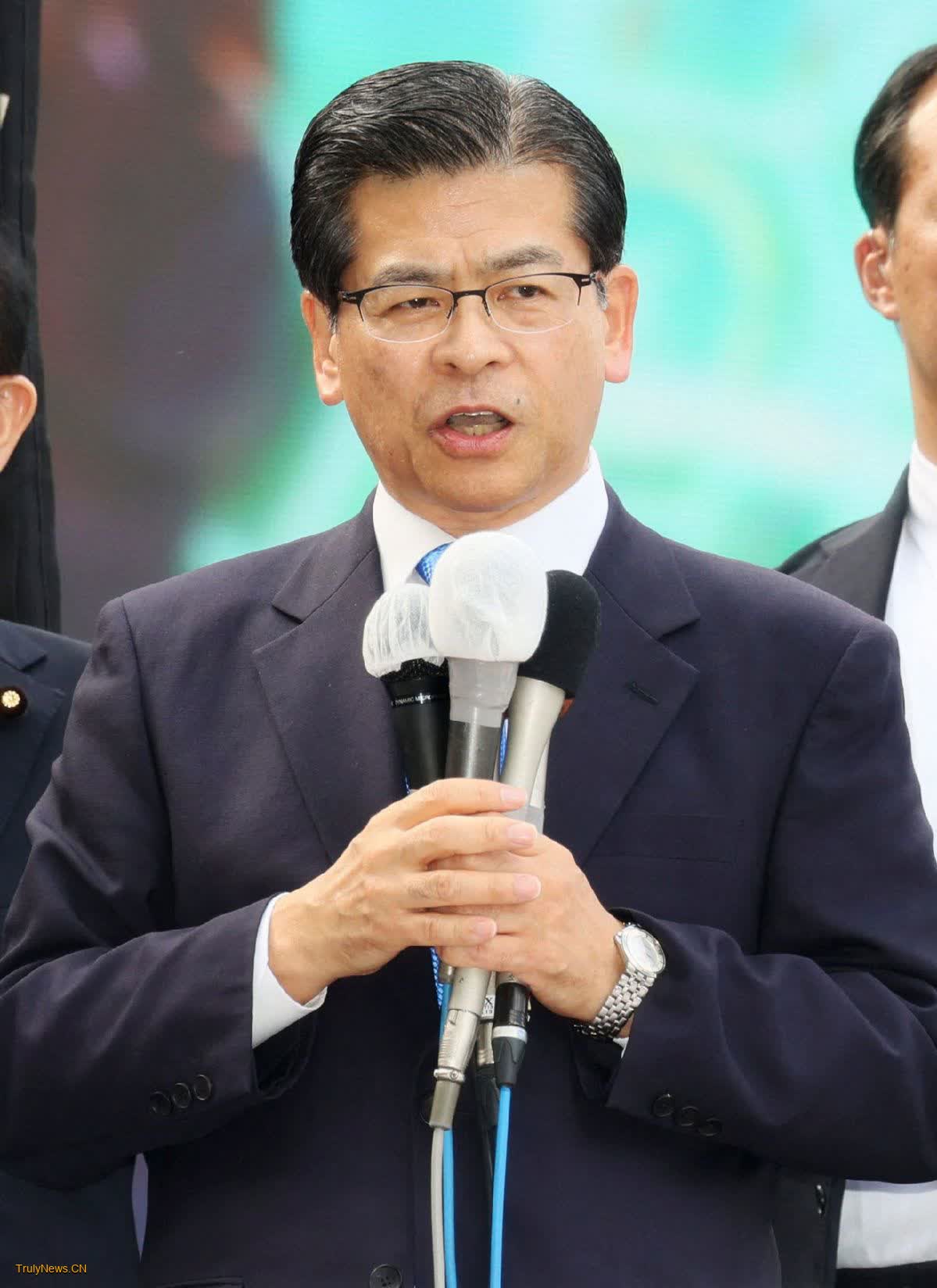
The leader of Komeito, the junior partner in Japan’s ruling coalition, announced his resignation on Oct 31, assuming responsibility for the party’s debacle in the parliamentary election.
Keiichi Ishii, Komeito’s chief representative, stated that as party leader, he bears full responsibility for the severe setback suffered by the party in the Oct 27 House of Representatives election, and has decided to step down.
Komeito’s seats fell from 32 to 24 in this election, with Ishii himself losing in his first attempt to secure the single-seat district of Saitama Prefecture’s 14th district. This marks the first time in 15 years that a Komeito leader has lost a lower house election.
Komeito plans to hold an extraordinary party convention on Nov 9 to elect a new leader, seeking to revitalize under new leadership.
In the Oct 27 election, Japan’s ruling coalition comprising the Liberal Democratic Party (LDF) and its junior partner Komeito lost their majority in the House of Representatives.
Despite the setback, Shigeru Ishiba, Japanese prime minister and LDP president, has signaled that the coalition will try to stay in power by garnering the support of some parties.
On Oct 31, LDP Secretary-General Hiroshi Moriyama met with Kazuya Shimba, secretary-general of the Democratic Party for the People (DFPP), agreeing to open discussions on economic measures and tax reforms. They aim to establish a “partial coalition” in which the DPFP would cooperate on issues like budget proposals and key legislation.
The LDP and Komeito plan to incorporate DPFP’s economic policies, including its recent election pledge to “increase take-home pay.” The DPFP has proposed raising the income threshold for taxable income, increasing the tax exemption threshold from an annual income of 1.03 million yen ($6,736) to 1.78 million yen.
The government estimates that raising the exemption by 750,000 yen could lead to a revenue shortfall of around 7.6 trillion yen for both national and local governments, making it essential to find ways to offset this revenue loss if the policy is to be implemented.
The DPFP is open to forming a partial coalition with the LDP and Komeito, working together on a case-by-case basis to achieve their policy goals. With the recent election leaving the LDP-Komeito coalition short of a majority, they now seek DPFP’s support to quickly pass the 2024 supplementary budget.
The LDP is also intent on securing Prime Minister Ishiba’s re-election during the special Diet session set to begin as early as Nov 11. In response, the Constitutional Democratic Party of Japan plans to rally other opposition parties to support its leader, Yoshihiko Noda, in the prime ministerial election.
As mentioned earlier, the LDP-Komeito coalition currently lacks a majority in the House of Representatives. If no candidate gains a majority in the first round of voting, a runoff between the top two candidates will determine the prime minister, with the candidate receiving the most votes from representatives winning the position.
In other news from Japan on Oct 31, the Bank of Japan (BOJ) decided at its monetary policy meeting to keep its policy interest rate unchanged at 0.25 percent. Factors influencing this decision include rising economic uncertainty in the United States ahead of the presidential election there, and ongoing instability in financial markets.
Domestically, the recent House of Representatives election has created political uncertainty following the defeat of the LDP and Komeito. The yen has resumed weakening in the foreign exchange market, adding pressure on the BOJ’s policy outlook. The central bank continues to closely monitor how economic measures and market trends are affecting Japan’s economy and prices.